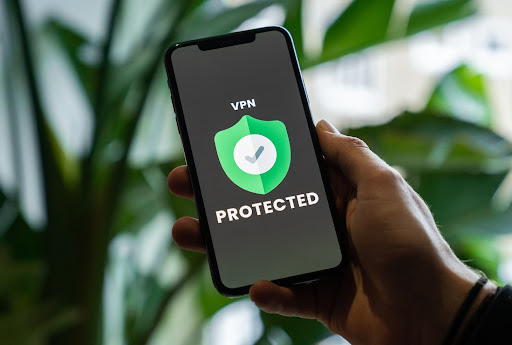VPNs have become an essential tool for online security and privacy. In a data-centric world, billions of users have access to the internet and they spend a considerable amount of time staying online. Whether it’s official work, entertainment, education, or shopping, it’s vital to take necessary measures to keep your data private and secure.
The VPN industry has flourished massively in recent years, and several premium VPNs vouch to provide you with a better and more secure internet experience. However, it’s natural to be skeptical about the performance of a particular VPN service before you commit to a long-term subscription package.
That’s why we recommend choosing free trial VPN apps that also offer a risk-free money-back guarantee so that you can test it before shelling out any subscription fee.
Let’s discuss some pros and cons of a free VPN trial.
Content Summary
VPNs with Free Trial
Numerous premium VPNs offer a free trial to let you try out their features and services without any cost. The free trial usually ranges from 7 to 10 days. However, there are certain pros and cons that come with these free trials. Let’s start with the pros before jumping to the cons.
Pros of Free Trial VPNs
1. Complete Access to Features and Functionality
In general, free trial versions of VPNs provide all of the perks of premium membership:
- A comprehensive selection of servers
- Good and fast speeds
- There are no bandwidth restrictions.
- 24/7 customer service
- Unblocking Netflix and many other services that seem to restrict VPNs
There’s no reason to be concerned about internet speeds slowing down or interrupting your web surfing to avoid exceeding the data limit. And if all you want to do is stream US Netflix and its global catalogs, you’re all fixed.
2. Ultimate Security with Zero Loopholes
You do not need to make a fuss about your info being put up for sale for revenue because the subscription cash from your user base guarantees that your supplier can deliver an excellent service with no underhanded tactics.
Furthermore, because the suppliers have better security protocols, installing their VPN software does not expose you to malware attacks. It’s clear that Google and Apple are coping with malevolent VPNs on their app stores, respectively, so they’re getting their job done.
3. No Advertisements
It’s quite straightforward. Unless you’re an aficionado of online ads, your free trial version VPN won’t exploit ads in your web browser. You also don’t need to fret over your service spreading your info with the marketers with whom they take a job, no matter how “securely encrypted” that info is.
When it concerns free trials, not all is pleasant – and the majority of the problems root in how the trials are designed.
Cons of Free Trial VPNs
1. A Payment Method is Mandatory
There are some free trial version VPNs that do not necessitate payment option verification. Since not all VPN services are the same, you should predict a few of them to request your credit card details before you sign up for their free trial version.
2. Subscription is Mandatory After Free Trial is Over
Unfortunately, not all of us can spend money on a VPN. With so many constraints imposed by the government on access to large segments of the online platform, it’s easy to see why this is an issue. Or when out-of-date licensing problems prevent users from obtaining their preferred content.
Just one more problem. If you’re not cautious about the sign-up procedure, your credit card could be billed for a one-year subscription. Keep in mind your VPN’s free trial plan (included in the term & conditions of service).
3. Free Trial Days Can be Lesser
Seven-day VPN trials are reasonable. You have access to your service’s full potential for a couple of days, enabling you to:
- Check their output during increased traffic overloads.
- Examine how effectively the VPN service performs when attempting to access filter-heavy streaming platforms such as Netflix.
- If you’re concerned about privacy, try out any enhanced security measures
If you aren’t uptight, three-day trials should suffice. But even so, we do not believe that a one-day trial will allow you to truly experience the service.
4. Hidden Functionality Limitations
Besides the limited time, you can also encounter services that have data limits (e.g., your trial ends after 1 week OR 10 GB of utilized traffic) or other restrictions. These differ between VPNs, so make sure that you read the conditions of service when you’re doubtful.
Some services, like NordVPN and ExpressVPN, also provide free trials on portable devices, leaving PC users out. Others (CyberGhost) also have a desktop alternative, but the time frame is reduced significantly (e.g., 7 days on mobile vs. only one day on desktop).
How to Sign Up For a Free Trial?
VPNs usually cost about $10 to $15 per month, but it is possible to find one for free. We examined various VPN services and noticed that users either have: A paid VPN trial for a limited time (like 1 or 2 weeks); A free version with limited bandwidth (for example, a maximum of 500MBs of browsing); or A return policy for a specific time (for example 1 month).
If you are using the service for a short period of time, we suggest you choose the limited bandwidth capacity option. But, if you are using a public WiFi network for work, a premium trial is the best option available.
Can I Extend the Free Trial Limit?
Not at all. You can try a free trial for a limited time and then subscribe to a plan with a money-back guarantee for compensation. VPN providers that offer a free package don’t usually ask for your credit card information.
If you try to deceive the VPN providers, they will eventually figure out what you’re up to and then block you. How do I cancel my free trial? When your free trial period expires, a few VPN providers will directly charge your account. Simply go to your VPN provider’s settings menu and delete your credit card details or remove your account to deactivate your freemium trial.
Does a VPN influence my internet speed?
Because of variables like the distance from the cloud server, heavy traffic, and security measures, a VPN connection can either increase or decrease your internet speed. The best VPN providers are working on ways to solve this problem and improve your net rate.









